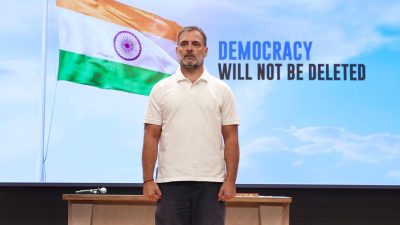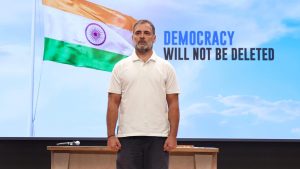Death is just a puppet in Kashmir’s tragedy of silence
SRINAGAR, AUGUST 13: Fifteen thousand orphans. Ten thousand widows. Eleven years of death and suffering. But this is not the greatest trag...

SRINAGAR, AUGUST 13: Fifteen thousand orphans. Ten thousand widows. Eleven years of death and suffering. But this is not the greatest tragedy of Kashmir.
There is a deeper tragedy, and it is the tragedy of silence. The selective outcry that greets each new death, each new blast, each new custodial killing. When the violence is politically convenient, it is condemned by those whose cause it bolsters. When it is not, these same voices fall mute.
The most recent example of this hypocrisy was evident in the reaction, or rather the non-reaction, of the leaders of separatist conglomerate All Parties Hurriyat Conference to the bomb blast on Residency Road last Thursday, which killed 12 people including photojournalist Pradeep Bhatia.
The APHC chairman Prof Abdul Ghani Bhat did issue a press release the day after the blast. He demanded an impartial probe by an international agencyinto the recent massacres of Sikhs in Chitti Singhpora, Hindu pilgrims in Pahalgam and migrant bricklayers in Anantnag — but not into the blast inSrinagar. And unlike other similar occasions when the perpetrators have been either security forces or counter-insurgents, or the killings were carried out in mysterious circumstances, the Hurriyat did not even call for a general strike.
Most Hurriyat leaders were not ready to talk on record regarding this blast, even though it was universally accepted as a brutal act. “We cannotcondemn it. We have reservations. We have our own problems and hurdles which force us to seal our lips,” a Hurriyat leader said. The reasons for this double standard are clear. The Hizbul Mujahideen had outrightly owned responsibility for the bombing. If Hurriyat had condemned it, thatwould amount to further antagonising the Hizbul — which it had already criticised for announcing a unilateral ceasefire to pave the way for a peaceful resolution of the Kashmir problem.
In fact, the Hurriyat’s open opposition to the Hizbul truce move had put the credibility of this strongest indigenous militant outfit in jeopardy in separatist circles. The Hurriyat had called the truce a hastyand fractured initiative.
“The Hizbul was forced (to renew its violent campaign) by the Hurriyat attitude towards the ceasefire, which had overnight turned them suspect assell-outs, despite their sacrifices,” a Hizbul sympathiser said. He added that the responsibility for the outfit taking such a bloody path again entirely lies on the shoulders of Hurriyat, which failed to grab theopportunity of peace and strengthen the dialogue process.
The other side of the story is equally ugly and full of hypocrisy. Nobody from the corridors of power in Delhi had a word of sympathy for the victims of a fake encounter at Panchalthan, Anantnag, last march. The news was released by the Union Home Secretary Kamal Pandey, who claimed that the security forces had killed the “five foreign terrorists responsible forthe massacre of Sikhs in Chittisighpora.”
And when the police forces ran amok and fired on a procession of villagers demanding a probe into the fake encounter, killing 13 among them, the Government first tried to cover it up by saying that the police had been fired upon from within the crowd, and only later ordered an inquiry to tide over the immediate crisis. Ironically, when the Union minister for parliamentary affairs Pramod Mahjan was asked whether the Government would take action against the perpetrators of the fake encounter and the indiscriminate firing on protestors, he refused, saying it would demoralise the troops.
Similarly, after it emerged that many of the Amarnath pilgrims killed at Pahalgam were probably shot by panicked or vengeful men of the Central Reserve Police Force, and not by the two militants who attacked thecamp, there was no official response to demands for a clarification of the grim massacre. In fact, Prime minister Atal Bihari Vajpayee flatly refused any judicial probe, saying there was nothing left to investigate and that Lashkar militants were responsible.
Thus it seems that bloodshed in Kashmir has turned into a political commodity, to be condemned when politically convenient and ignored when anembarrassment. No one, neither the Government nor the separatist forces, is innocent in this human tragedy.





- 01
- 02
- 03
- 04
- 05


























